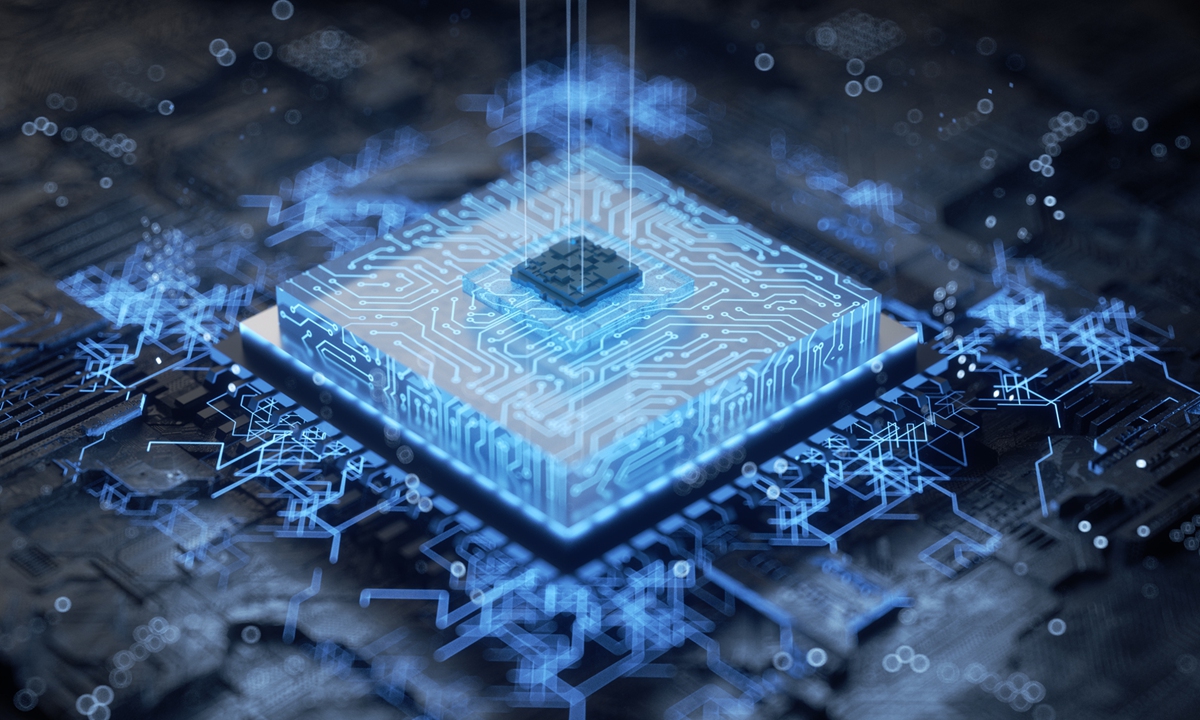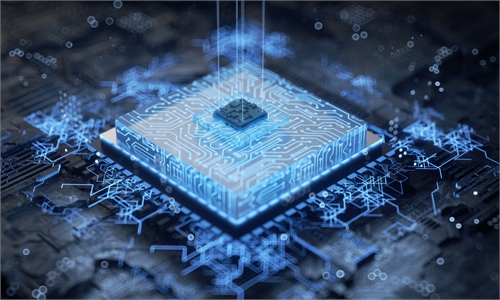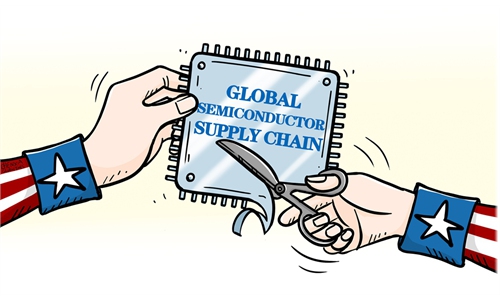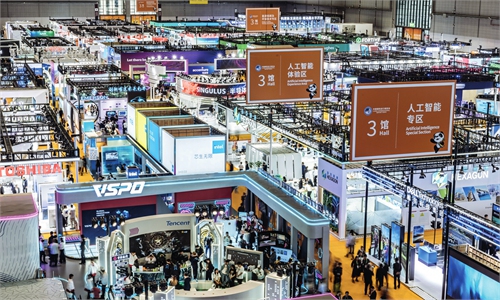Nvidia reportedly planning to release new AI chips for China, amid tightened US restrictions

Photo:VCG
US chipmaker Nvidia reportedly plans to release new artificial intelligence (AI) chips aimed at the Chinese market following the US' tightened restrictions on selling high-end AI chips to China.
Observers said that Washington's intensified moves targeting China will only backfire as US industrial players will lose out in the Chinese market.
The Nvidia chips are called HGX H20, L20 PCIe and L2 PCIe and Nvidia could announce them on November 16, Reuters reported on Thursday, citing chip industry newsletter SemiAnalysis.
The Reuters report added that the chips include most of Nvidia's newest features for AI work, but have had some of their computing power cut back to comply with new US rules.
Nvidia said earlier in October that new export restrictions announced by Washington would block it from selling two of its modified advanced AI chips - the A800 and H800 - both of which were created for the Chinese market last year to comply with previous export rules, per the Reuters report.
Nvidia will try to preserve its market share in China, Xiang Ligang, a veteran telecom industry observer, told the Global Times on Friday, adding that China is a major market and a key factor for the company's revenue.
The US restrictions will have a significant hit on leading players such as Nvidia by affecting their market share and potential profits, Fang Xingdong, founder of Beijing-based technology think tank ChinaLabs, told the Global Times.
Xiang added that China has been vigorously ramping up investment and expanding development of relevant technology from AI to various innovative large models, as global enterprises can't bypass the Chinese market.
China now has at least 130 large language models launched by companies including Alibaba and Tencent, accounting for 40 percent of the global total and just behind the US' 50 percent share, according to media reports.
Observers also said that the US' ill-intentioned moves will only motivate Chinese enterprises and research institutions in relevant sectors to step up their technological innovation, as the nation has already established solid tech foundations and is catching up.
The restrictions may have a certain impact on domestic development, but China will eventually be able to come up with higher performance chips, said Ye Tianchun, director of the Institute of Microelectronics under the Chinese Academy of Sciences.
Ye told the Global Times that the US can't block China's progress in AI development, and at worst the restrictions will only delay the progress.



